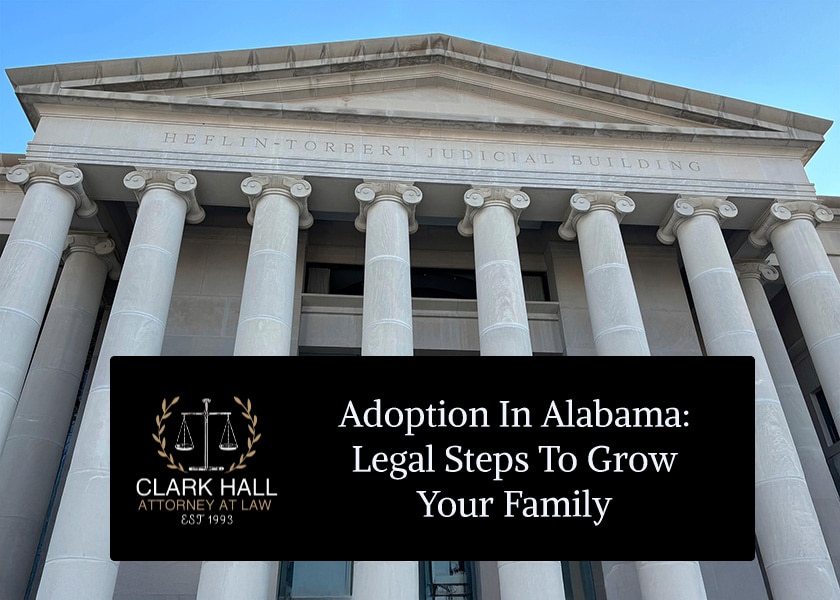## Understanding Adoption Alabama Law: Legal Steps to Grow Your Family
Adoption is a transformative journey that marks the expansion of love and commitment within a family. However, navigating the legal waters of adoption in Alabama demands a strong understanding of specific state laws and procedures. Adoption Alabama Law forms the backbone of this path, guiding parents, children, and legal practitioners through a process laden with formalities and intricacies. Clear comprehension of these statutes ensures the legal acceptance and protection of all parties involved. When discussing adoption in Alabama, it’s crucial to know that each step you take is rooted in a legal framework designed to protect and preserve the rights of the child, the birth parents, and the adoptive family, ensuring a smoother transition to a new family structure.
## What Constitutes Adoption Alabama Law?
Adoption Alabama Law encompasses a set of statutes and regulations specifically crafted to govern the process of adoption within the state. This body of law serves to address critical components such as parental consent, the rights of biological parents, eligibility criteria for adoptive parents, and the finalization of adoption. Fundamental to these laws is the intention to create a stable and nurturing environment for the child being adopted, as evidenced by rigorous background checks and home studies.
These laws are designed to address the multifaceted aspects of adoption. They not only cover procedural elements but also ethical considerations and the overarching goal of preserving the best interests of the child. Adoptive parents must provide evidence to show they can offer a stable, loving home, thus meeting the child’s needs. Adoption Alabama Law ensures all relevant factors are considered, safeguarding the child’s future within the adoptive family framework.
The importance of Adoption Alabama Law extends beyond procedural requirements; it lays the groundwork for establishing legally binding relationships between children and adoptive parents. Legal adoption equates to the transfer of parental rights from the biological parents to the adoptive parents, a complex process overseen meticulously by the courts to prevent any form of coercion or legal infringement upon either party involved.
## The Importance of Understanding Adoption Alabama Law
The legal foundation provided by Adoption Alabama Law is indispensable in guiding families through a potentially complex process. Understanding these laws allows adoptive families to navigate the adoption landscape more effectively, minimizing potential misunderstandings and ensuring full compliance with Alabama’s legal requirements. Knowledge of these laws also fosters better relationships with social workers and adoption agencies, streamlining communication and enhancing mutual understanding.
A thorough grasp of Adoption Alabama Law provides a sense of security and confidence for prospective adoptive families. Knowing your legal rights and obligations eliminates the uncertainty of what steps to take next, reducing emotional stress during the adoption process. It allows prospective parents to make informed decisions, knowing the timeframes, potential legal hurdles, and documentation required to finalize the adoption successfully.
Furthermore, a comprehensive understanding of these laws ensures that the adoption process not only proceeds legally but also ethically. Adoptive families who are well-informed are better equipped to interact with the child’s biological parents, offering assurance that their intentions are honorable and their home is a safe space for the child. This knowledge helps in building a strong, legally-compliant adoption plan that respects the needs and rights of all parties.
## Adoption in Alabama: Legal Framework and Context
The legal framework surrounding adoption in Alabama is structured to ensure every adoption is conducted in a controlled and legally sound manner. From the outset, this process demands adherence to specific legal requirements, which are established to balance the interests of adoptive parents, birth parents, and, most critically, the child. Understanding this framework is essential for anyone considering adoption in Alabama.
In the initial stages, prospective adoptive parents must comply with background checks, home studies, and fingerprinting. The purpose of these comprehensive checks is to ensure a safe and loving environment for the adoptee. This framework ensures that children are placed into homes that are willing and capable of fostering a nurturing upbringing, protecting their welfare and best interests.
Parental rights and consent form a central theme within this legal framework. For an adoption to proceed, the consent of the biological parents is generally required unless such an obligation is waived due to specific circumstances such as abandonment or incapacity. Understanding these requirements and potential exceptions are vital for adoptive parents as they navigate their path towards growing their family.
## Real-World Applications of Adoption Alabama Law
Applying Adoption Alabama Law in real-world scenarios can be complex and multifaceted. Each adoption case has its unique challenges and situations that require careful legal interpretation. Real-world applications demonstrate how these laws work in practice, reinforcing the importance of thorough knowledge and preparation.
For instance, in cases involving interstate adoption, the Interstate Compact on the Placement of Children (ICPC) comes into effect. This agreement mandates compliance with both the sending and receiving states’ laws, adding an extra layer of regulation for adoptive parents and emphasizing the intricacies involved in interstate adoptions. Navigating this aspect of law requires a strategic approach, often necessitating professional legal assistance.
Another real-world example is the adoption of a child from foster care. In such instances, Adoption Alabama Law prioritizes reunification with biological family members but allows for termination of parental rights when it serves the child’s best interests. This demonstrates Alabama’s commitment to both the child’s welfare and the preservation of family structures wherever possible.
## Essential Steps in the Adoption Process
Taking the right steps in the adoption process is crucial for ensuring a smooth and legally compliant journey toward expanding your family. The adoption process in Alabama typically begins with choosing the type of adoption—whether it be domestic, international, or through foster care—and proceeds through a series of well-defined legal steps.
The first critical step involves completing a thorough home study, which is a formal review conducted by a licensed social worker. This home study assesses the prospective adoptive family’s suitability, ensuring they meet Alabama’s legal standards for adoption. It includes home visits, interviews, and background checks to build a comprehensive report submitted to the court.
Following the home study, obtaining consent from the biological parents is pivotal. These consents must be voluntarily given and witnessed by an appropriate authority, typically occurring no sooner than five days after the birth of the child in Alabama. Understanding the delicate nature of consent is crucial, as it plays a significant role in the adoption’s legality and ethicality.
## Pitfalls to Avoid in the Adoption Journey
Adoption, while a joyful journey toward family growth, is not without potential legal pitfalls. Awareness and avoidance of common adoption mistakes is essential to ensure a legally-sound and successful process. Many of these pitfalls arise from misunderstandings regarding legal obligations and processes inherent in Adoption Alabama Law.
A common mistake is the underestimation of the time, effort, and paperwork involved in completing a successful adoption. Prospective adoptive parents may be ill-prepared for the extensive background checks, home visits, and waiting periods. Each step requires vigilance and attention to detail, making preparation and patience critical assets in the adoption process.
Another frequent pitfall is insufficient understanding of the legal implications surrounding the consent of biological parents. Consent must not only be informed and voluntary but also adhere to specified timelines, making it crucial for prospective adoptive parents to be well-versed in these conditions to avoid invalidation of the adoption process.
## When Legal Advice Becomes Necessary
Legal counsel becomes pivotal at various stages of the adoption process to ensure compliance with the regulations stipulated by Adoption Alabama Law. An attorney’s guidance can be invaluable, particularly when dealing with complex issues such as contested adoptions or intricate legal paperwork requirements.
One critical moment for consulting an attorney is when finalizing the adoption. The legal finalization of an adoption involves court hearings where the adoptive parents must present their case to a judge. An attorney will ensure that all paperwork is correctly filed, deadlines are met, and that parents are well-positioned legally to finalize the adoption without hitches.
Navigating the legal nuances surrounding parental consent and the potential for contested adoptions also highlights the need for professional legal insights. An attorney can provide clarity on legal rights and potential outcomes, offering strategies for mitigating conflicts and ensuring the adoption process aligns with Alabama’s legal requirements.
## Key Advantages of Legal Representation
Engaging a qualified attorney provides significant advantages in the adoption process, ensuring comprehensive legal coverage and support. Legal representation aligns your actions with Adoption Alabama Law’s standards, reducing risks of procedural missteps. An attorney offers personalized advice tailored to specific circumstances, addressing unique challenges and promoting understanding of intricate legal issues.
Legal representatives excel in document preparation and filing, ensuring that every form is complete, accurate, and submitted timely within statutory deadlines. This attention to detail mitigates potential legal setbacks and can expedite the adoption process, reducing the emotional wear and uncertainties commonly associated with adoption delays.
Furthermore, attorneys are adept at mediating between all parties involved, serving as a buffer in emotionally charged situations. Their experience in dealing with adoption cases allows them to facilitate better communication and understanding between adoptive and biological families, contributing to a smoother transition for the child and reinforcing the familial bonds sought through adoption.
## How Clark Hall, Attorney at Law, Facilitates the Adoption Process
Choosing Clark Hall as your legal representative affords numerous benefits when navigating the adoption process in Alabama. As a seasoned practitioner with an extensive understanding of Adoption Alabama Law, Clark Hall brings dedication and a client-focused approach that can ease the complexities of the adoption journey.
Clients benefit from Clark Hall’s deep legal knowledge and experience, ensuring that every aspect of the adoption process adheres to Alabama’s stringent legal standards. This commitment to legal accuracy minimizes the risk of procedural errors, safeguarding the interests of the adoptive family and the child.
Moreover, Clark Hall’s client-focused philosophy ensures the adoption process is as stress-free as possible. Providing clear and consistent communication, Clark Hall demystifies legal jargon, keeping clients informed and confident throughout their adoption journey. This transparent relationship allows prospective adoptive families to focus on building strong bonds and a loving environment for their new family member.
## FAQ




